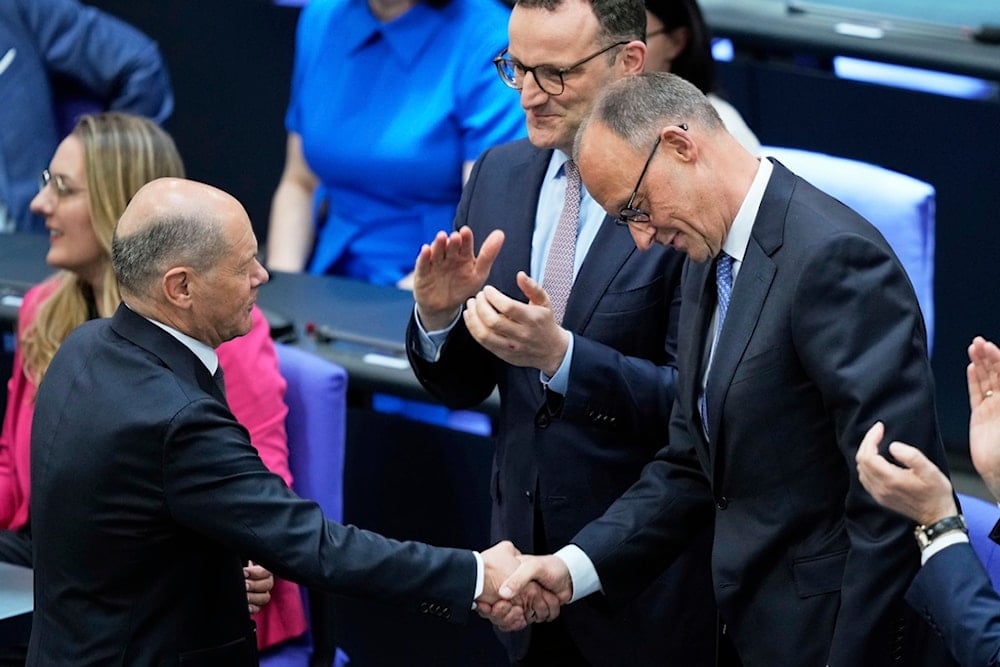Friedrich Merz confirmed as Germany's new chancellor after runoff vote
At 69, Merz brings decades of political and legal experience, having served in both the Bundestag and the European Parliament, and later building a career as a corporate lawyer.
-

Leader of the Christian Democrats Friedrich Merz is congratulated by outgoing Chancellor Olaf Scholz after being elected new chancellor at the German federal parliament, Bundestag, at the Reichstag building in Berlin, Germany, Tuesday, May 6, 2025. (AP Photo/Ebrahim Noroozi)
Germany's conservative leader, Friedrich Merz, was officially appointed chancellor on Tuesday by President Frank-Walter Steinmeier, following an unexpected twist in the Bundestag that required a second round of voting. Although Merz leads a coalition between his Christian Democratic Union (CDU)/Christian Social Union (CSU) alliance and the Social Democratic Party of Germany (SPD), together holding 328 seats, he failed to secure an absolute majority in the initial ballot, garnering only 310 votes, six short of the 316 needed.
This marked the first time since World War II that a chancellor candidate failed to win outright support in the first round, raising immediate concerns about internal rifts within the governing coalition. However, Merz prevailed in the second round with 325 votes, clearing the threshold and paving the way for his formal swearing-in at the presidential palace later that day.
At 69, Merz brings decades of political and legal experience, having served in both the Bundestag and the European Parliament, and later building a career as a corporate lawyer. From 2016 to 2020, he served as chairman of BlackRock Germany, the local branch of the world's largest asset management firm. His role during that period has remained controversial, particularly as BlackRock became entangled in the "cum-ex" tax fraud investigations involving illicit dividend trading schemes. Although Merz was not personally implicated, critics continue to raise concerns over potential conflicts of interest, especially given BlackRock's influence as a major shareholder in numerous German corporations.
His appearances at BlackRock-sponsored events, including at the World Economic Forum in Davos, have further fueled public skepticism over the extent of corporate influence in his policy platform. Opponents warn that his background may shape a pro-corporate governance agenda, particularly in areas such as financial regulation and taxation.
Merz's policy priorities include boosting defense expenditures and launching a €1 trillion infrastructure investment initiative financed through borrowing. Yet despite securing parliamentary backing, he enters office in a highly fragmented political environment. Recent polling shows public approval for his leadership hovers at just 38%, reflecting a cautious electorate amid economic stagnation, rising inflation, and growing momentum from the far-right Alternative for Germany (AfD).
His first foreign trip as chancellor is expected to be to Paris, where he will meet with French President Emmanuel Macron. The visit is seen as an effort to reaffirm the strength of the Franco-German partnership at the core of the European Union, an alliance that will be crucial as Merz faces a politically volatile term ahead.
Read more: Merz misses majority in initial German Parliament vote for Chancellor

 3 Min Read
3 Min Read








